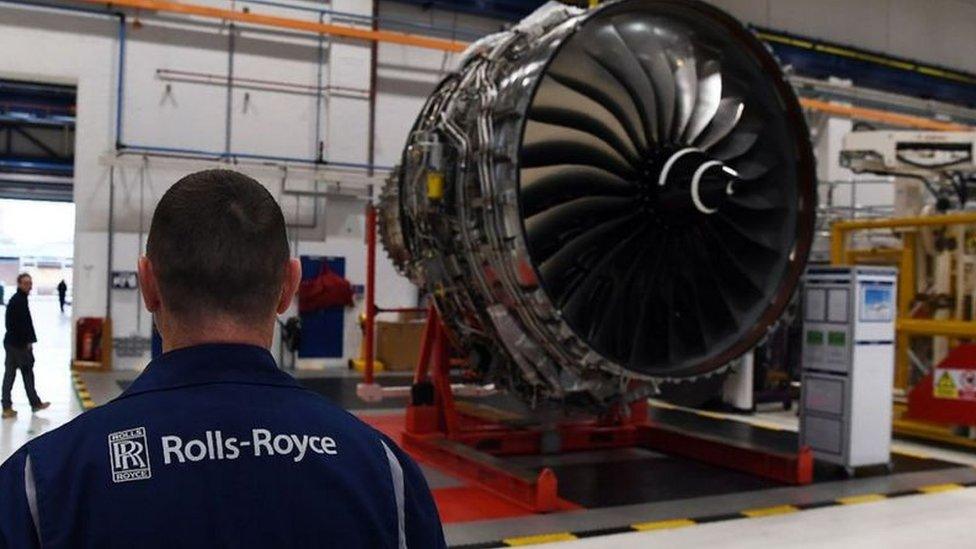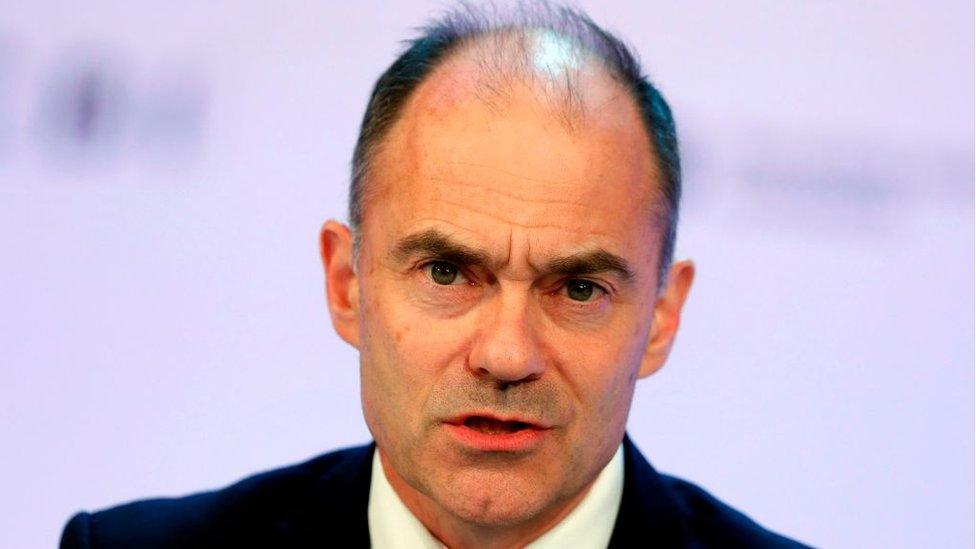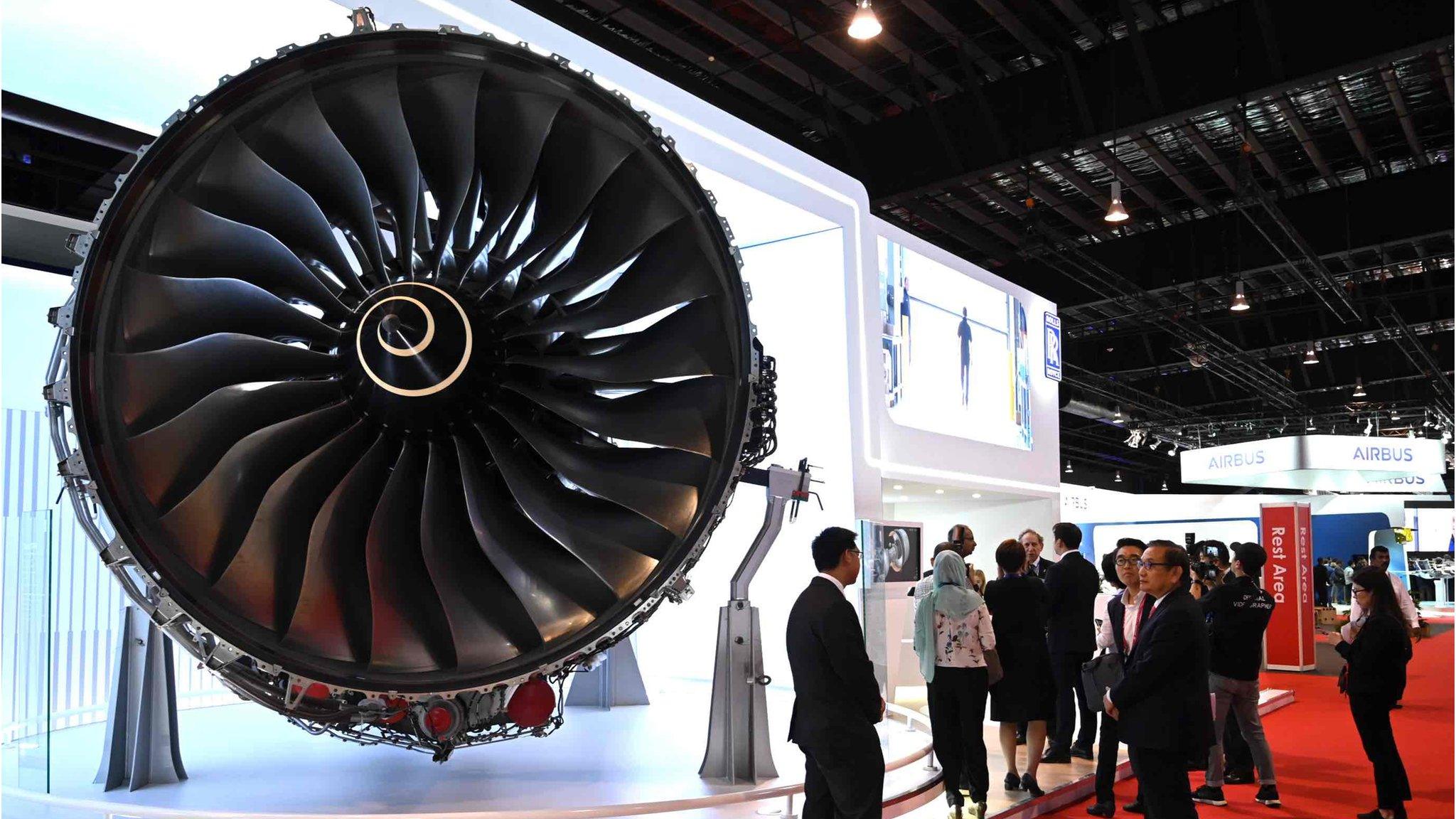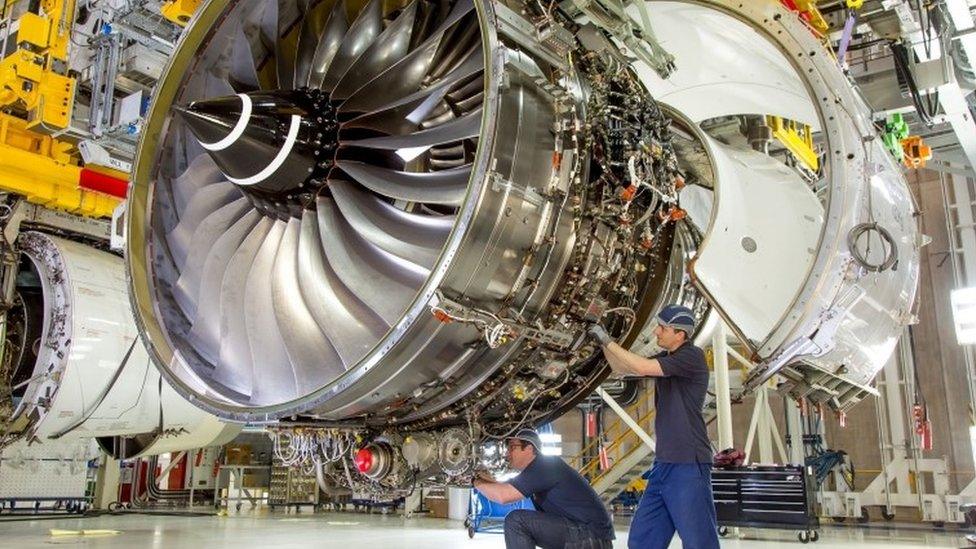Rolls-Royce says 'worst behind us' as it posts £4bn loss
- Published
- comments

Aircraft-engine maker Rolls-Royce posted a huge loss last year due to the collapse in air travel, but it told the BBC "the worst is behind us".
Boss Warren East said 2020 had been "unprecedented", with the company making a loss of almost £4bn, after a £583m profit the year before.
Rolls makes most of its money servicing engines, and the Covid-driven fall in airline travel has slashed revenues.
It has cut 7,000 jobs and raised cash from investors to bolster its finances.
However, Mr East said the vaccine rollout should see a pick-up in air travel in the second half of the year, although a lot depends on getting international agreement on checking passengers' health.
The extra cash raised from shareholders was enough to see the company through the rest of the crisis, even if there was no upturn this year, he added.
"2020 was an unprecedented year... the impact of the Covid-19 pandemic on the group was felt most acutely by our civil aerospace business," Mr East said.
"In response, we took immediate actions to address our cost base, launching the largest restructuring in our recent history."
The Derby-based company expects to burn through another £2bn cash this year as it continues to restructure the business. It has warned it may have to slash a further 2,000 jobs.
But Mr East said the cuts, fundraising and disposal of assets would stabilise Rolls-Royce and set it on track for growth in the future.
"2020 was a year like none other, but we do think the worst is behind," Mr East told the BBC.

Warren East believes 2020 was as bad as things will get for Rolls-Royce
'Brutal' results
Rolls-Royce is also raising cash through asset sales, although that plan ran into problems this week when Norway suspended the €150m sale of Rolls' Norwegian unit, Bergen Engines, on security grounds.
Jefferies analyst Sandy Morris said Rolls had "much to do", but it was feasible. "The possibility of reaching modest net debt by end 2023 is alive," he said.
Hargreaves Lansdown analyst Laura Hoy said that trading in most other parts of RR also suffered, with only the defence arm showing profits growth.
"Full year results at Rolls Royce were brutal," she said. "No amount of cost saving and restructuring was enough to offset massive declines in civil aerospace.
"Defence was the only bright light, but it makes up less than 30% of overall revenue so its 8% uptick in profits was buried under heavy losses in all of the group's other segments."
Rolls-Royce's future depends on the return of air travel, she said. "Ultimately, Rolls needs engine hours to recover in order to stage a fully-fledged comeback."


While Rolls-Royce has lost billions and continues to burn through cash, investors will take some limited reassurance from this set of results. Chief executive Warren East forecast that the company will turn cash positive in the second-half of this year, and that the number of hours its engines spend in the air - a vital metric as the company only earns money when planes fly - will increase this year, although only to 55% of pre-pandemic levels.
Mr East said the £9bn of liquidity the company had secured, through a rights issue and extra borrowing, should be enough to see it through the next two years even if there is no aviation rebound.
The cash crunch has come at a difficult time for the aero-engine maker, which faces an urgent need to invest in cleaner forms of propulsion, including batteries and hydrogen.
At the same time it has to keep its traditional engine offering competitive, as Boeing and Airbus are likely to launch new models before the new technologies are ready. On this Mr East had some positive news - Rolls-Royce has signed a deal with Wideroe, the Scandinavian airline, for a new electric aircraft to fly regional routes. The shares up were 3% in early trading.

Related topics
- Published7 February 2021

- Published14 January 2021
